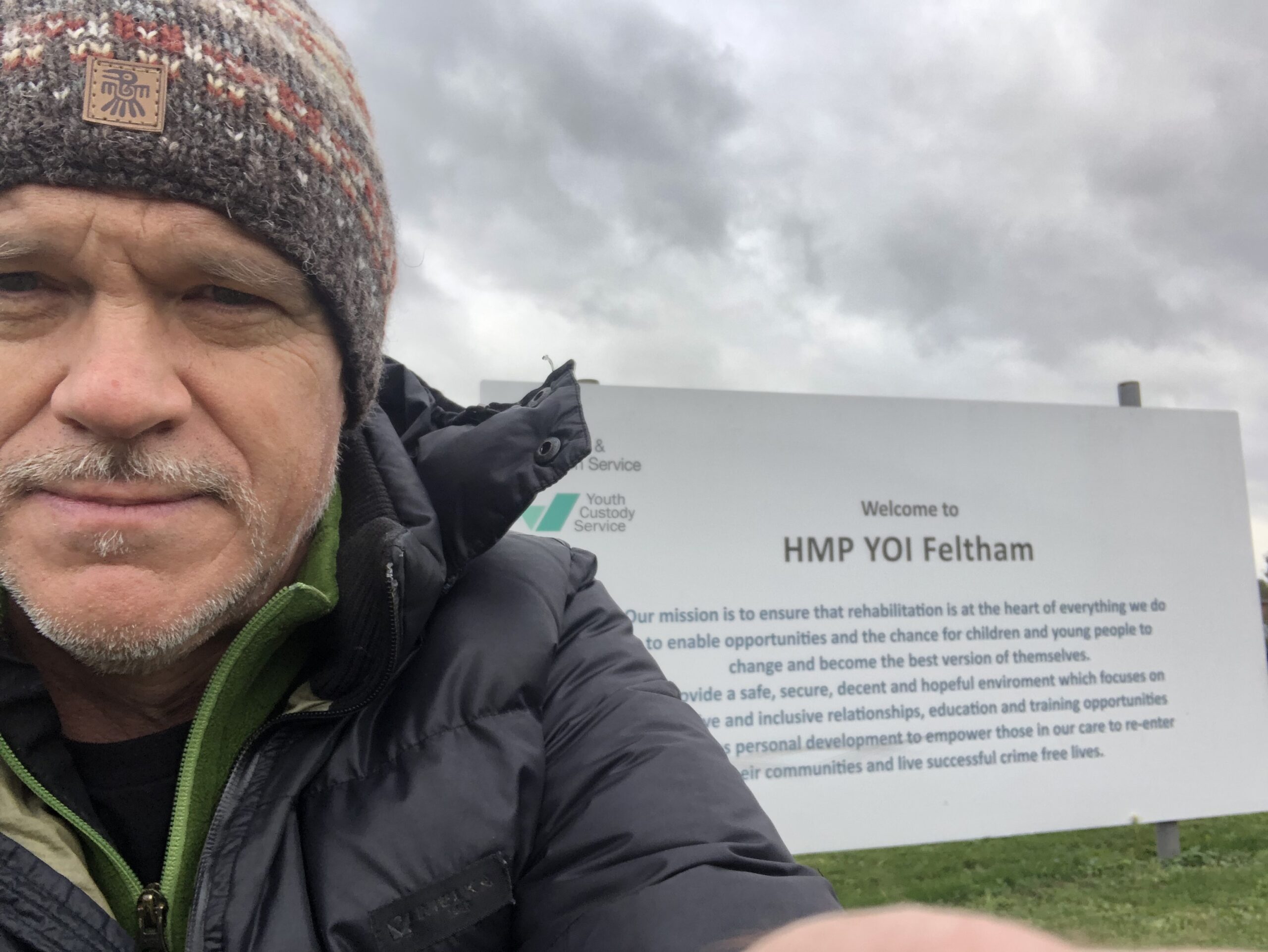Boats not Bars is a prison indoor rowing program run by the charity Fulham Reach Boat Club.
It uses the intervention of an indoor rowing programme as a medium for learning the skills and behaviours that have been shown to reduce the chances of someone reoffending after release from prison. With prisons at capacity, and statistics showing us that nearly half of those behind bars will go on to reoffend, something needs to be done to make prison a one-off punishment, and not the start of an ongoing cycle of offending and imprisonment.
The following is written by Nick Marshallay, who ran a course in HMP/YOI Feltham. It gives an insight into how the indoor rowing course engages with prisoners.

Looking back on it, using an internet search about the prison I would be visiting was not the best idea…"Gang violence ‘out of control," "894 fights/violent attacks in a year," "one of England’s
scariest prisons."
I won’t go on, but suffice to say the list of articles, news stories and YouTube
videos detailing the conditions there is long. Why was I going into a prison with a reputation like this?
For the last 8 weeks I’ve been volunteering with a group of young people in HMP/ YOI Feltham as part of the charity Fulham Reach Boat Club’s award winning ‘Boats not Bars’ program. Boats Not Bars is a 6-8 week course learning to row on the Concept 2 indoor rowing machine married with ‘through the gate’ support as participants leave prison with the aim of reducing reoffending.
This was my very first experience delivering the program created and driven by the impressive Imogen Walsh. It was not what I expected. I have to admit my research had created a little trepidation about what would await.
Like many of you reading this, I had never been inside a prison and to be perfectly honest, not spent a lot of time thinking about them or the people inside them.
It turned out to be a moving experience which has had a big impact on me and my views of the criminal justice system and the role of prisons within them. More of that later.
As you might imagine even getting into a prison is rightly a challenge in terms of process, clearance, and physical searches; you rapidly get used to the echoing of keys and locks and waiting for doors to be unlocked, opened, closed and relocked for you.
Once in, I met the brilliant prison psychologist with us on the program in Feltham and we would then go to the prison gyms to deliver the ‘Boats not Bars’ program.
The format of our sessions and program was straightforward. A targeted
session of technique and work on the rowing machines followed by a group discussion with the psychologist discussing and exploring a range of issues. I truly believe the combination of physical exercise, learning a new skill and the group discussions had a significant impact on most participants.
So, what we my takeaways for me?
1. Overall, the young men I met seemed to be a really good bunch of people. They really engaged with what we were doing, got on well together and were a pleasure to be with. I was genuinely shocked to hear some still had years of their sentences to serve. It reinforced my view that where people end up is largely a result of their circumstances, experiences and opportunities.
Who is to say I wouldn’t have ended up inside given different experiences?
2. Exercise and sport are powerful forces that can help generate positive mindsets, relieve stress and enable people to change their lives. Post workout our group freely and willingly engaged in discussions on topics around their mental health and positive changes and actions they could take.
3. Prison is a scary place. Does it work? Punishment? Yes, check…it’s certainly that, deterrence? I’m not convinced – look at reoffending rates. Rehabilitation? The experience does not seem to be designed to best rehabilitate: Locking young people in a cell for 90% of the day (worst cases some children leaving their cells for just 15 minutes a day), living in an
environment where they don’t feel safe and violence is common, people being released with no idea of where they will go or stay or what they will do?
Reoffending rates are highest in the 15-17 age group. I can’t help but feel society is shooting itself in the foot with a system that helps perpetuate crime and criminal behaviour whilst costing over £75k+ a year per
young person.
I am sure most staff at working in our prisons are doing the best they can
given budget and other constraints but there must be a better way of rehabilitating and as a result reducing crime.
I feel privileged to have had this experience and worked with these young people and hope to repeat the experience in the future. It left me desperate for them to make a success of their lives on release. As Dostoevsky said, “The degree of civilization in a society can be judged by entering its
prisons.”
If this is true then we still have steps to take and Imogen and Fulham Reach Boat Club are taking action in helping make this change. In the future Imogen’s vision is to develop the ‘through the gate’ element of the program to drive even greater impact on the young people’s lives.
Ps – Don’t search for horror articles about the prison after reading this, instead take a moment to learn more about criminal justice and reoffending rates (particularly young people) and consider what we could all do about it!
To learn more about Fulham Reach Boat Club, click here.
